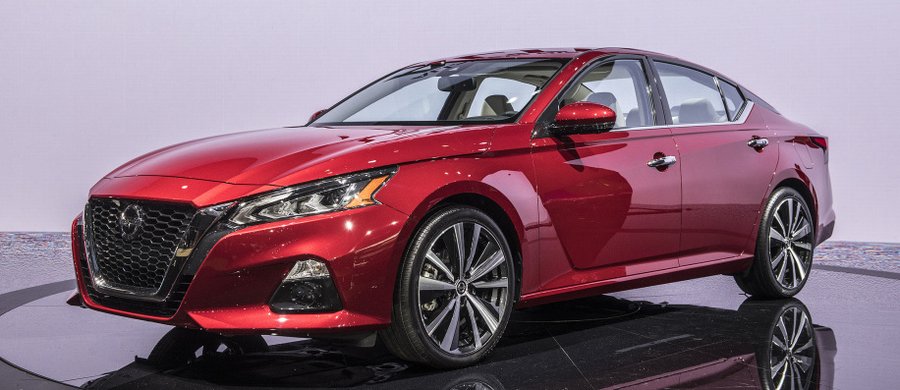Nissan designed the sixth-generation 2019 Altima to fulfill a lofty mission: shake up the midsized sedan segment. The carmaker said it was already well into work on its formerly best-selling vehicle when the Rogue crossover became the most popular Nissan on the lot. Once the Altima had been freed from the constraint of being the company's No. 1 in the U.S., Nissan decided to go further with the Atima's design and detailing, and make it a global car. The result sits on a new platform, gets two new engines, a lot more tech, and is available with all-wheel drive.
Trim count increases to five: S, SR, SV, SL, and the new Platinum. The standard engine in every trim is a 2.5-liter four-cylinder with 80 percent of its parts either new or redesigned compared to the current 2.5-liter four. Changes include adding direct injection, integrating the exhaust manifold into the cylinder head, and a thermal insulated resin intake port, which uses an air layer to help keep fresh intake air cold. Power goes up nine horsepower to 188, torque rises three pound-feet to 180. Fuel economy and refinement see upgrades as well.
The optional engine on SL and Platinum trims is the 2.0-liter, four-cylinder VC-Turbo variable compression engine first launched on the Infiniti QX50, replacing the 3.5-liter V6. In this application, the numbers come out to 248 hp and 273 lb-ft, a drop of 22 hp but a gain of 22 lb-ft. Unlike on the QX50, however, peak torque doesn't arrive any earlier on the 2.0-liter than it does on the 3.5-liter. On the other hand, Nissan expects a fuel economy improvement by some double-digit percentage. The 2.5 and the 2.0 VC shift through a revised Xtronic CVT transmission with an expanded lock-up area to boost fuel economy.
Both engines have lower profiles and mount lower in the new platform's engine bay, which has guided the design outside and in. Overall, the sedan is an inch longer, 0.9 inches wider, sits 1.1 inches lower on a wheelbase 1.9 inches longer, and has shorter overhangs. "Boomerang" headlights that can be optioned up to LEDs flank a deep V-motion grille that's available in dark chrome. A lower hood and cowl point lead to the instrument panel mounted lower in the cabin for a more airy feel. The floating roof leads to boomerang taillights that maintain the V-motion theme out back. Optional refined details include LED fog lights, heated side mirrors with LED turn signals, and acoustic glass for the greenhouse. Two new colors are Sunset Drift Orange, which shifts color with the light, and Scarlet Ember.
Inside, the "gliding wing" design emphasizes the horizontal span, and Nissan livened up the color detailing and finishes. A seven-inch Advanced Drive Assist Display in the gauge cluster joins an eight-inch infotainment touchscreen in the center console. The Zero-Gravity seats use dual-density foam and more bolstering, eight-way power driver's seats come standard, a four-way power passenger's seat is optional. Cloth serves as the default interior, in either Charcoal, Charcoal with orange accents, or Light Gray. Also on the options list are features like dual-zone climate control and "simulated high tech-look wood trim."
Intelligent All-Wheel Drive makes an appearance on the Altima for the first time, able to send 50 percent of torque to the rear wheels. It's available for any of the five trims, but only with the 2.5-liter four-cylinder. General drivetrain enhancements include the installation of monotube rear shocks, suspension reinforcements and geometry changes, plus a dual-pinion electric power steering system. The base wheel for the S trim is a 16-incher with wheel covers, while the other trims start with a 17-inch alloy. The SR and Platinum trims with the 2.0-liter turbo can get a 19-inch wheel.
ProPILOT Assist comes standard on SV, SL, and Platinum trims, as does new assistance tech like Rear Automatic Braking and Traffic Sign Recognition. New NissanConnect Services mean owners can get over-the-air updates, real-time traffic updates, and remote start via the app.
Related News



